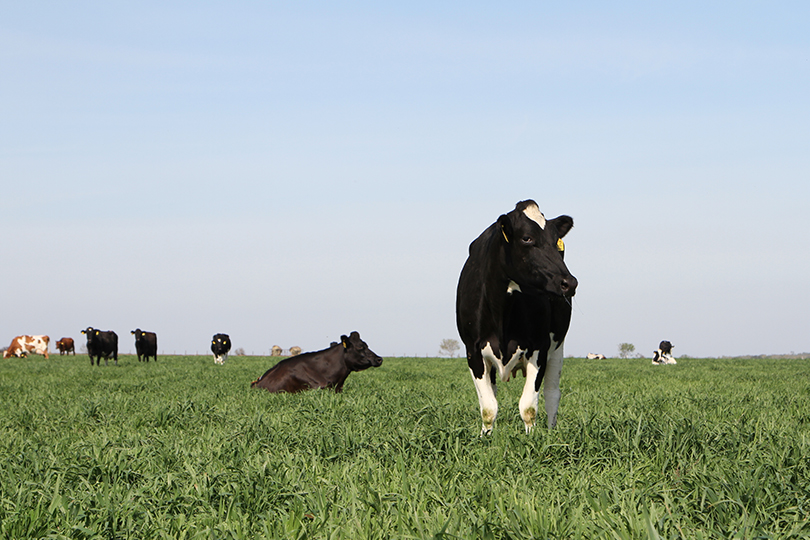By Jennifer Dorsett
Field Editor
U.S. dairy farmers are longtime leaders in sustainability and environmental stewardship, and a new dairy industry effort will help make sustainable practices and technology even more accessible and affordable for farmers.
The Innovation Center for U.S. Dairy, a forum of dairy farmers and industry stakeholders, recently unveiled its “Net Zero Initiative” (NZI), an industry-wide effort to help farms of all sizes adopt sustainable practices and implement new technology to meet the organization’s “2050 Environmental Stewardship goals” of carbon neutrality, optimal water usage and improved water quality by 2050.
“We’re clearly doing this because we’re listening to our stakeholders. This is an expectation,” Mike Haddad, Innovation Center for U.S. Dairy chairman, said. “At the end of the day, our customers, heck our employees and certainly our communities, are all wanting to know are we taking care of the Earth while we make dairy products? It’s a fair question and we need to say more than just yes, we have to prove it.”
It’s not only dairy farmers and consumers who are hoping to see positive changes.
The Innovation Center for U.S. Dairy also announced an up to $10 million, multi-year commitment with Nestlé USA to support the NZI and scale access to resources and better environmental practices to farms across the nation.
“Supporting and enabling farmers through the Net Zero Initiative has the potential to transform the dairy industry,” Jim Wells, Nestlé USA chief supply chain officer, said. “Scaling up climate-smart agricultural initiatives is key to Nestlé’s ambition to achieve net zero greenhouse gas emissions by 2050 and will help reduce the carbon footprint of many of our brands. We are excited to collaborate with U.S. dairy and our suppliers to contribute to an even more sustainable dairy supply chain.”
Nestlé is the first of what the industry hopes are many partners who will join the initiative, Krysta Harden, executive vice president of Global Environmental Strategy for Dairy Management, Inc. (DMI), which manages the U.S. dairy checkoff program, said.
“They’re the very first legacy partner that’s come on board to help transform dairy for the future by making a sizable financial commitment to help with this process. They’ve agreed that they’re going to support NZI through foundational research and on-farm pilots and help us develop new products and markets,” Harden said. “We look forward to bringing other partners on board, as well. We need the experience of others, the expertise, the research capabilities, financial resources and other resources of partners.”
The NZI has four key areas of focus: feed production; manure handling and nutrient management; cow care and efficiency; and on-farm energy efficiency and renewable energy use. While the dairy industry acknowledges there is no one-size-fits-all solution to these issues, dairy farmers have already made great strides in sustainability.
“Due to innovative practices in cow health, improved feed and genetics and modern management practices, the environmental impact of producing a gallon of milk in 2017 has shrunk significantly from 2007, requiring 30 percent less water, 21 percent less land and a 19 percent smaller carbon footprint,” the Innovation for U.S. Dairy noted, citing a January 2020 study published in the Journal of Animal Science.
The dairy community continues to demonstrate progress in environmental, animal care, food safety and traceability and community contributions through the U.S. Dairy Stewardship Commitment.
More than 25 dairy companies representing 70 percent of the nation’s milk production have voluntarily adopted the U.S. Dairy Stewardship Commitment, giving dairy farms a transparent way to show trackable progress and improvement.
“We know a lot more is possible–proven science and evidence from dairy’s existing best practices tells us we can get to net zero. This is not only good for dairy farmers, it’s also good for all businesses that serve dairy, the communities where we farm and the millions of people who enjoy dairy every day,” Haddad said.
For more information on U.S. dairy’s sustainability journey, click here.

